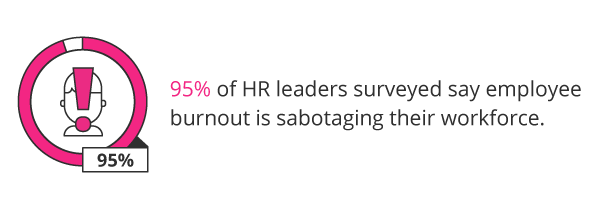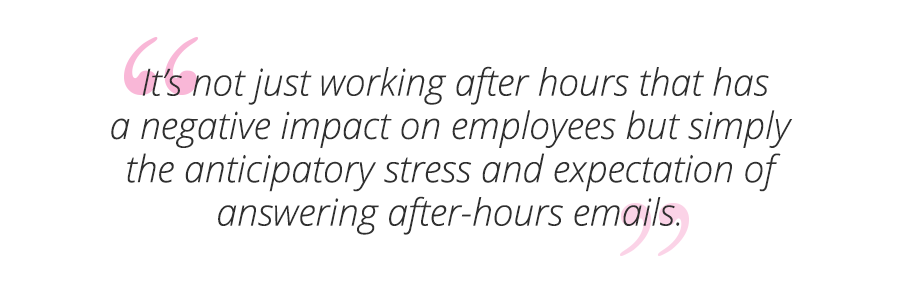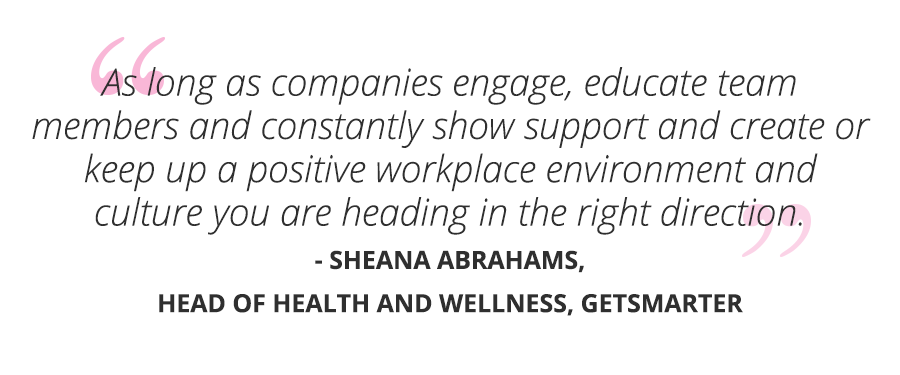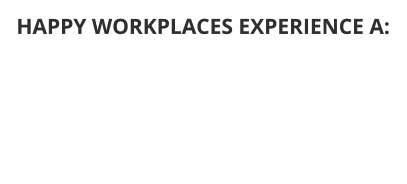How To Help Your Team Develop Resilience To Workplace Stress
£255 billion.
That’s how much the effects of employee burnout are costing the global economy annually.1 And the impact will be felt in your organisation too.

A recent study conducted by Kronos Incorporated and Future Workplace, which included more than 600 Chief Human Resource Officers, VPs of HR, HR directors, and HR managers from organisations of all sizes, revealed that a shocking 95% of those surveyed say employee burnout is sabotaging their workforce.2
Have you noticed your team members displaying a dip in morale and productivity, taking frequent sick leave or arriving to work looking like they didn’t get any sleep the night before?
Whether it be due to unrealistic workload expectations, too many disruptive meetings, job insecurity, the pressure to be contactable at all hours, too much overtime and not enough time for rest, or lack of recognition from managers, in today’s fast-paced work environment, employees run a high risk of losing motivation at the workplace.
Three research-backed ways to build emotional resilience in your team
Kevin Mulcahy, a partner at Future Workplace, believes “everyone wants to work less and get
paid more, but having skilled managers and a rewarding culture that allows employees to see the importance of their contributions are the building blocks of an engaged workforce.”3
As a leader, there are certain things you can control with regards to your team’s wellness and productivity, and certain things you can’t. For example, you cannot control how they deal with a stressful environment or totally eliminate their stress – but you can identify employees who are vulnerable to burnout and implement certain practices and rules that could combat the effects of stress and anxiety and instead build up your team’s emotional resilience.

Emotional resilience can be defined as a measure of our ability to bounce back quickly and thrive in the face of difficult situations, and in the workplace – where projects fail, markets crash, criticism is dished out and expectations are high – it’s a skill that is vital to improve and develop.
To grow your team’s emotional resilience and help prevent burnout, it’s important you care about and focus on their personal growth and development.
Here are three research-backed methods for helping your team deal with stress and anxiety in the workplace:
1. Set the example: your wellbeing impacts the wellbeing of your team
A report by Gallup, which surveyed 105 teams over 3 6-month intervals, found that well-being is contagious: “Individuals with thriving wellbeing were 20% more likely to have thriving team members 6 months later.”4
Model well-being practices by making certain activities a team priority, such as:
- Exercise or yoga
- Taking 15-minute breaks after every 90 minutes of work
- Walking meetings
- Flexible work hours
2. Get rid of the “always-on” work culture
Most employees find it really hard to switch off after work. In fact, out of 1, 271 full-time employees surveyed, 50% indicated they typically work more than 40 hours a week and nearly 4 in 10 said they work at least 50 hours.5
Studies have found that overwork and the resulting stress can lead to all sorts of health problems, including impaired sleep, depression, diabetes, impaired memory, and heart disease.6
Samantha Conroy, Assistant Professor of Management at CSU’s College of Business, is one of three authors of a study which found that it’s not just working after hours that has a negative impact on employees but simply the anticipatory stress and expectation of answering after-hours emails:
“What we find is that people who feel they have to respond to emails on their off hours become emotionally exhausted, partially because they can’t detach from work. They are not able to separate from work when they go home, which is when they are supposed to be recovering their resources.”7
As a leader, if you’re staying up until all hours emailing your employees, reviewing their work or setting up meetings for the week – even if your intentions are to just get ahead of your tasks – they may feel pressured to either respond to your emails immediately or action feedback on your reviews. You may specify they don’t need to take immediate action, but just receiving work communication after-hours could contribute to the anticipatory stress of tasks they need to fulfil the next day.

To minimise the stress of after-hours work communication:
- Enforce a team rule that no emails are allowed to be sent after 5pm, or that work email notifications on mobile devices should be switched off
- Ensure you don’t review work after hours, and if you want to get ahead of emails, save them in draft form, ready to be sent at 8am the next day
3. Be a leader who is empathetic and compassionate
This is an obvious one: kindness.
The University of New South Wales surveyed 5,600 people across 77 organisations, and found “the single greatest influence on profitability and productivity within an organisation is the ability of leaders to spend more time and effort developing and recognising their people; welcoming feedback, including criticism; and fostering co-operation among staff.”8
Are you delegating, communicating and interacting with your team in a way that builds them up and shows them you’re willing to listen to and support them?
Encourage a “compassion culture” within your team. If a team member suddenly has to drop everything to attend to a family emergency, they shouldn’t feel overwhelmed by the stress of all the work that will build up in their absence. Rather, they should have a leader and a team who rallies behind them, willing to take over projects or help out in any way possible.

Sheana Abrahams, Head of Health and Wellness at GetSmarter believes that “being open, honest and straightforward as a manager is vital and if someone is struggling or not performing at their best it is important to get to the route of the problem. It might be work related or it might be personal, but you need to know what the cause is before you can solve the situation at hand.”
If your team feels empowered to be open and vulnerable with you when life gets tough, you’ll be much better equipped to support them and help them deal with their stress.
Bonus tip: Invest in your employees’ skills
By empowering your employees and team members to excel in their roles you’ll enable them to handle more of the pressures that come hand in hand with the job. Upskill your employees by enrolling them in online short courses aimed at equipping them with the experience and confidence to thrive in their workspaces.
Preventing burnout and growing resilience will impact the bottom line
Let the statistics speak for themselves:
An iOpener Institute study found that in mid-sized companies, happy workplaces had a 46% reduction in turnover, 19% reduction in the cost of sick leave, and 12% increase in performance and productivity.9 Similarly, research by HR consultancy, Willis Towers Watson, found that companies in which employees experienced emotional engagement, as well as a sense of being enabled and energised by work, had twice the earnings and nearly three times the gross profit of companies that had average to low levels of engagement.10

Burnout is an extremely serious condition that not only impacts the employee but also has a massive organisational impact. As a leader, not only do you have a responsibility to take care of yourself and build up your own emotional resilience, but also that of your team.
Do you want to make this kind of impact on your workplace culture?
Ensure your leadership skills are making an invaluable impact on the productivity and well-being of your team.


